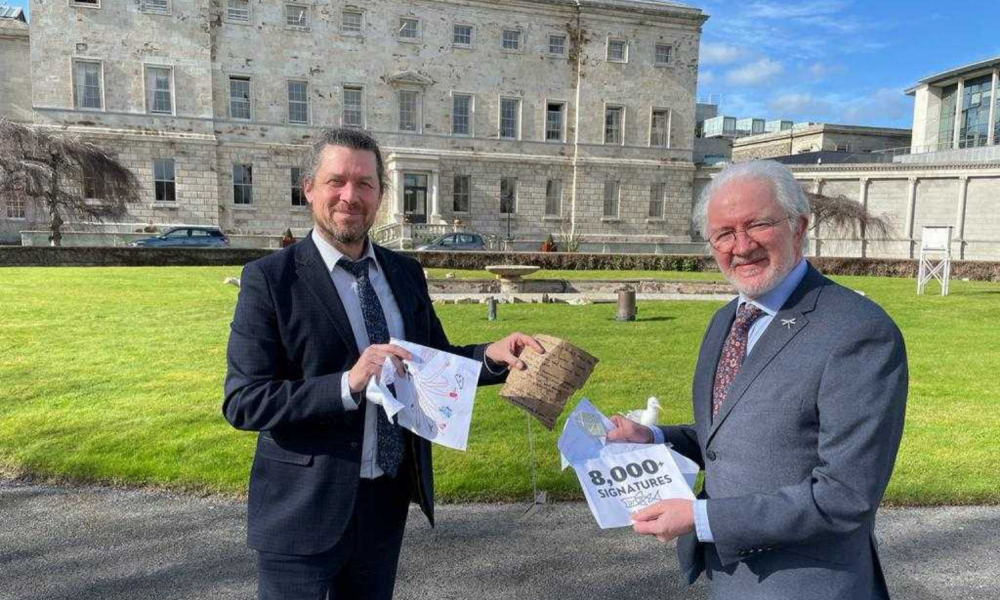Basking sharks to be given status of ‘protected wild animal’ on World Wildlife Day

Minister for Heritage and Electoral Reform, Malcolm Noonan TD, has announced that the basking shark is to be protected under the Wildlife Act with the status of a ‘protected wild animal’. He also confirmed that a collaborative Code of Conduct for the eco tourism and wildlife watching industry will be developed to support best practice.
Minister Noonan stated;
“Work has been underway in my Department for a number of months to progress protections for the basking shark and I’m delighted to be able to announce today that they will be finalised in the near future. Basking sharks are extraordinary creatures and they’re facing increasing pressures from a range of sources, including disturbance. This move will confer legal protections on them in the short term and enhance their protection in the longer term through the collaborative development of a Code of Conduct to support best practice in sustainable eco tourism.”
“The forthcoming review of the Wildlife Act, as per the Programme for Government, will also enable further consideration of aspects of protection. I’d like to thank my colleagues Minister McConalogue and Minister Coveney for their support in progressing this important work, and to the many members of the public – particularly the young children – who have been so passionate in calling for basking shark protection.”
Basking sharks are historically and culturally significant to Ireland, but as of 2019 have been considered endangered. The National Parks and Wildlife Service under Minister Noonan’s Department has been working on this issue for a number of months following a major public campaign.
Welcoming the news, Green TD for Wicklow Deputy Steven Matthews said;
“As a Wicklow resident, I know how much marine protection matters to coastal communities. This move by my colleague Minister Malcolm Noonan will support the protection of this species, and the Code of Conduct he’s developing will help everyone who enjoys the sea – whether for tourism or recreation – to ensure they’re helping to protect it too.”



